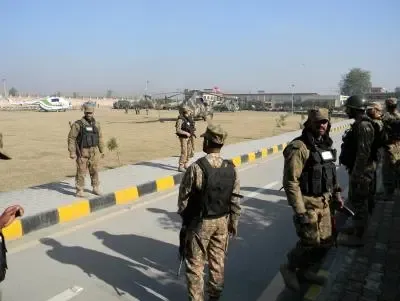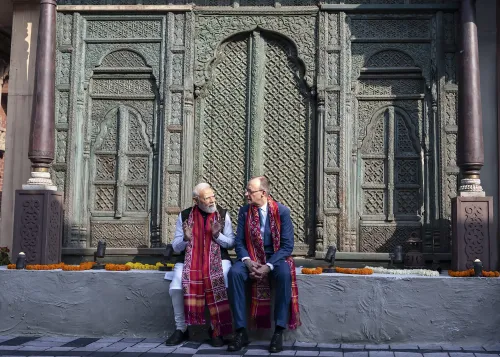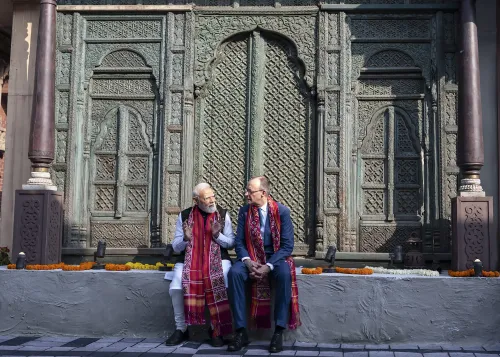Are Pakistan’s Soldiers Sacrificing Their Lives for Misguided Leadership?

Synopsis
Key Takeaways
- Pakistani soldiers are suffering due to leadership failures.
- Internal threats are escalating, challenging the military's focus.
- Military operations have not effectively addressed the roots of violence.
- The perception of the Army in conflict zones is shifting towards suppression.
- Political distractions are undermining national security.
Islamabad, Oct 12 (NationPress) Pakistani soldiers are bearing the brunt of a leadership that has seemingly lost its sense of accountability, as highlighted in a recent media report following the tragic events of October 7-8, when 11 soldiers lost their lives during an anti-militancy operation in Khyber Pakhtunkhwa’s Orakzai district.
The report by Blitz emphasizes that the vast, unaccountable, and politically entangled structure of the generals has undermined the very institution it professes to safeguard.
“As violence escalates, the question remains: will the military continue to serve as both the ruler and protector?” the report stated, echoing concerns published on Saturday.
For years, Pakistan's security strategy has been fixated externally on India and Afghanistan, blaming them for its chronic security issues. However, the most pressing threats now stem from within the country. The ongoing homegrown militancy in KPK, the ethno-nationalist insurgency in Balochistan, and sectarian strife across the nation highlight a significant failure in its security approach.
While Operation Azm-i-Istehkam was designed as a demonstration of strength, its inability to curb militancy reflects the Army's hesitance to confront its own policy inconsistencies.
For decades, Rawalpindi has tolerated both “good” and “bad” militants, a legacy rooted in years of proxy sponsorship aimed at achieving regional ambitions. Attempts to combat them without addressing the ideological and institutional complicity behind their existence are akin to treating symptoms while ignoring the underlying issues.
The increasing military casualties serve as a stark reminder of this cost, symbolizing the futility of a security policy steeped in political distraction. For years, Pakistan’s generals have justified their political dominance as a shield against instability. Yet, the rising body count suggests otherwise; the more the Army embeds itself in governance, the less secure the nation becomes.
Instead of concentrating on the volatile regions of KPK and Balochistan, where militants and insurgents are re-establishing their foothold, the leadership in Rawalpindi seems more invested in stabilizing a faltering civilian government, negotiating with foreign creditors, and managing Islamabad’s delicate relations with Washington, Beijing, and Riyadh.
Field Marshal Asim Munir has emerged as much a statesman as a military leader, engaging in financial negotiations, spearheading diplomatic initiatives, and effectively acting as Pakistan’s parallel Prime Minister.
This expanding political role, however, has its drawbacks. As the Army’s leadership becomes increasingly entwined in governance and foreign affairs, its counterterrorism efforts have suffered, leaving its machinery thin and demoralized.
The rising military fatalities will only exacerbate the already declining morale among soldiers.
As militant violence resurges across Pakistan’s borders, with the TTP reinstating its shadow governance in parts of KPK and a new wave of Baloch insurgents targeting military convoys and economic projects tied to the China-Pakistan Economic Corridor (CPEC), the state’s response has been both predictable and ineffective. Rawalpindi and Islamabad have resorted to more military operations, heightened checkpoints, and increased rhetoric about “national resolve.”
For those living under the influence of this militarized system in KPK and Balochistan, the presence of the Pakistani Army is often perceived as “less of protection” and more of suppression and occupation.
Despite this reality, the country’s security establishment has shown little willingness to address the political roots of this instability. They continue to ignore how decades of militarized governance have alienated communities and deepened distrust between the central government and its periphery.










